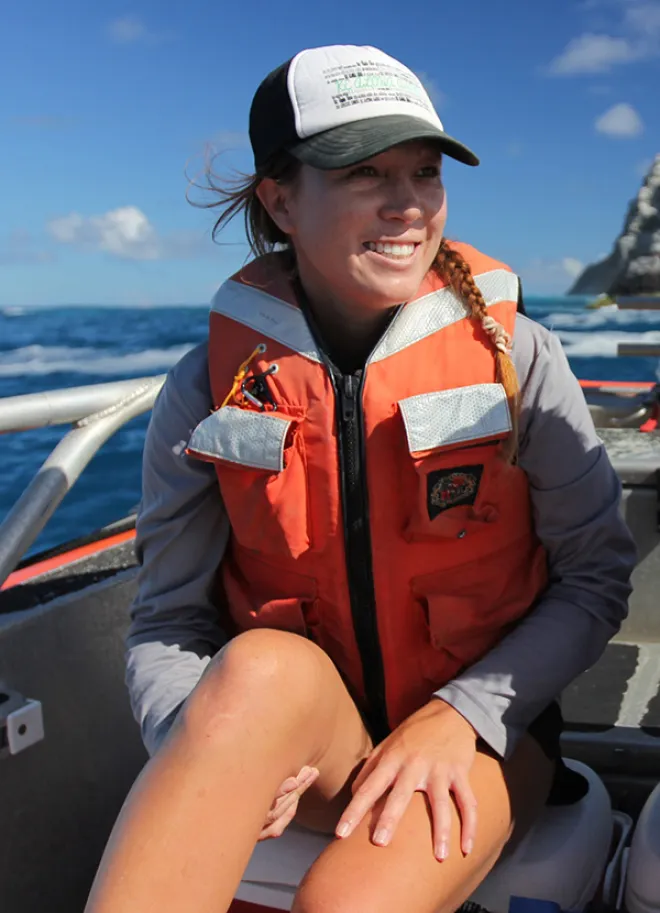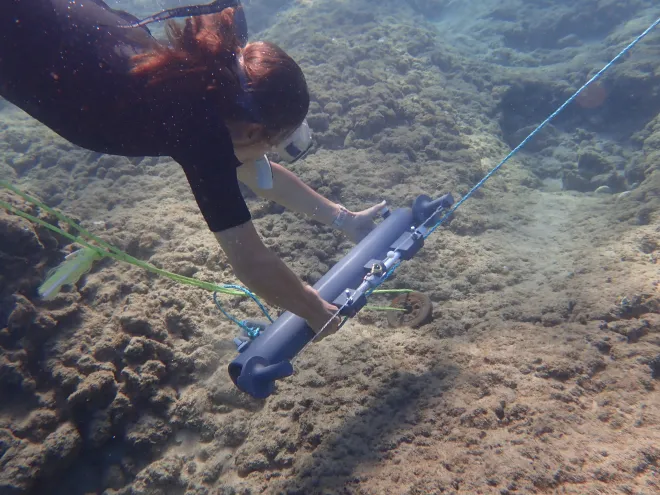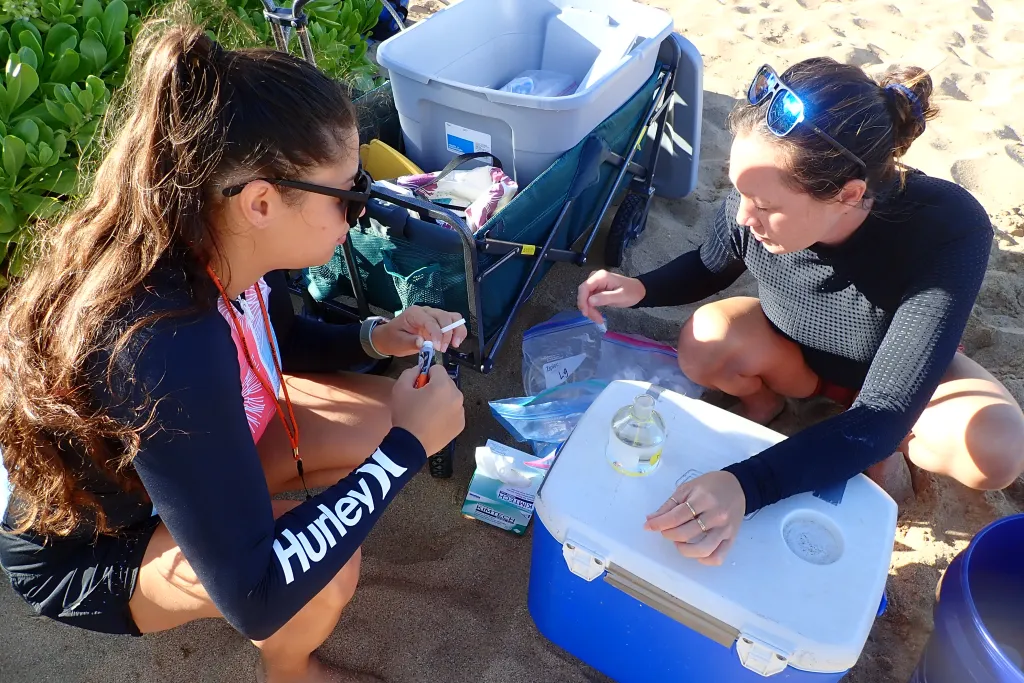In celebration of Asian American, Native Hawaiian and Pacific Islander Month, USDA’s National Institute of Food and Agriculture (NIFA) is highlighting NIFA-funded researcher Dr. Andrea Kealoha. Dr. Kealoha oversees the University of Hawai’i Maui College Water Quality Lab, Pūkoʻa hinaʻole.
Tell us about your path into your current field. Who and/or what inspired you to pursue public health or science more generally?
I grew up surfing, fishing and diving. Our family gatherings were always held at the beach, and I spent a lot of time with my dad gathering food like limu (seaweed) and ‘opihi (limpets) along the shoreline. I learned at an early age that the health of my culture was intimately linked to the health of our ocean. Even as a child, I could tell that our oceans were changing, the abundance of fish was declining, and our beaches were eroding. I realized it was my kuleana (responsibility) to protect our ocean resources. I became an oceanographer, and now I study water quality and the impacts of climate change and other stressors on coral reef ecosystem health.

How has the NIFA Alaska Native-Serving and Native Hawaiian-Serving Institutions (ANNH) program shaped your professional development as a scientist?
Being a part of the NIFA ANNH program has given me confidence as a scientist, as well as an educator. I have learned how to lead and effectively communicate research projects, manage grants and budgets, and build and facilitate collaborative relationships. Through our NIFA ANNH projects, I have also had the opportunity to mentor students, which has been such a great learning experience for me!
What advice to you have for current Alaska Native-Serving and Native Hawaiian-Serving Institutions students who may be interested in pursuing a similar career path?
Indigenous people intuitively understand environmental processes, and so I believe we are uniquely positioned to excel in careers within the environmental fields. I would highly encourage any student interested in pursuing this path. It is also very important to seek mentors who will provide support, advice and opportunities along the way. And of course, once you have made it, provide mentorship and support to those who are starting their own academic and career journey.

The theme for this year’s Asian American, Native Hawaiian, and Pacific Islander Heritage Month is “Building Legacy Together: Our Communities’ Journey of Strength and Resilience”
What hopes do you have for your field of science and its impacts, and for your students?
I have high hopes for my students! I am probably one of only a handful of Native Hawaiians with a Ph.D. in oceanography. In 10 or 15 years, that number could double or triple. As the sciences diversify, so will the perspectives and solutions we develop to address water challenges. I think that will be the key to our communities’ strength and resilience.
Top photo: NIFA-funded researcher Dr. Andrea Kealoha. Dr. Kealoha oversees the University of Hawai’i Maui College Water Quality Lab, Pūkoʻa hinaʻole. Image provided by Dr. Kealoha.

